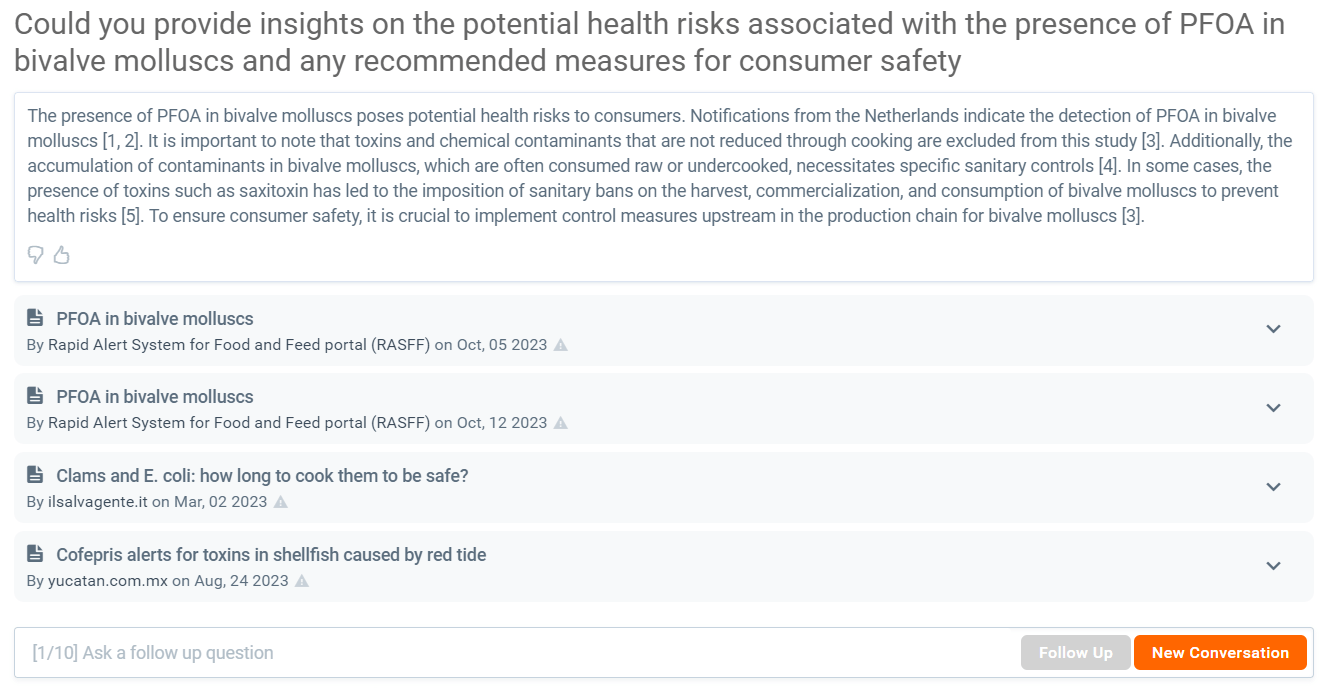In a recent notification from the Netherlands, a concerning discovery has been brought to light - the presence of Perfluorooctanoic Acid (PFOA) in bivalve molluscs. This revelation raises significant questions about food safety and necessitates a deeper understanding of the implications. Join us on a journey as we unravel the complexities surrounding this issue, exploring its origins, risks, and potential impact on public health.
The Netherlands' Alert: PFOA and Bivalve Molluscs
The Netherlands, in an alert dated October 5, 2023, has officially reported the detection of PFOA in bivalve molluscs. This notification, validated by the European Commission, has spurred INFOSAN, the Netherlands, and Vietnam into action. The gravity of the situation is underscored by its classification as a "Serious" risk. While no specific risk mitigation measures have been outlined, the urgency of the matter cannot be overstated.
Decoding the Risk: PFOA's Presence and Potential Implications
PFOA, a synthetic chemical compound, has found its way into bivalve molluscs, posing a potential threat to consumer health. The absence of defined hazards and reported illnesses necessitates further investigation. This alarming discovery prompts crucial questions: How extensive is the contamination? What are the potential health risks associated with PFOA ingestion? Answers to these questions are vital for safeguarding public health.
Navigating Forward: Risk Mitigation and Regulatory Action
In response to this concerning revelation, the Netherlands has taken immediate action by requesting reinforced checks through TRACES, a key step in ensuring the safety of food products. However, the absence of specific risk measures warrants a broader discussion on regulatory protocols. How can we enhance monitoring and enforcement to prevent such incidents in the future? This incident underscores the need for a comprehensive review of existing protocols.
Unmasking the Numbers: Analyzing PFOA Levels
Analytical results indicate the presence of PFOA at 1.2 µg/kg - ppb, exceeding the maximum allowable limit of 0.7 µg/kg - ppb. This disparity raises critical questions about food supply chain integrity, from production to distribution. How can we fortify checks and balances to prevent such chemical contaminations in our food? The need for a robust and vigilant regulatory framework is evident.
Conclusion: Safeguarding Food Safety, Protecting Public Health
The revelation of PFOA in bivalve molluscs serves as a stark reminder of the ongoing challenges in food safety. It highlights the importance of stringent regulatory measures, comprehensive monitoring, and proactive risk mitigation strategies. As we navigate this incident, it is imperative that stakeholders come together to strengthen our collective resolve in safeguarding public health.
SGS Digicomply: Your AI Co-Pilot for Food Safety Assurance
When it comes to scanning the horizon, having a reliable and fast tool at your fingertips is crucial. Enter SGS Digicomply, where you can swiftly pose queries to our virtual assistant and receive concise, document-backed answers. Let's ask our virtual assistant a question: "Could you provide insights on the potential health risks associated with the presence of PFOA in bivalve molluscs and any recommended measures for consumer safety."

As we can see, within seconds, we receive a prompt overview of the current situation and sources to delve deeper into understanding PFOA in Bivalve Molluscs.
We strongly recommend logging in to SGS Digicomply right now to thoroughly explore the documents and stay up-to-date with the latest insights. Explore SGS Digicomply platform now.





.webp?width=1644&height=1254&name=Food%20Safety%20Dashboard%201%20(1).webp)
